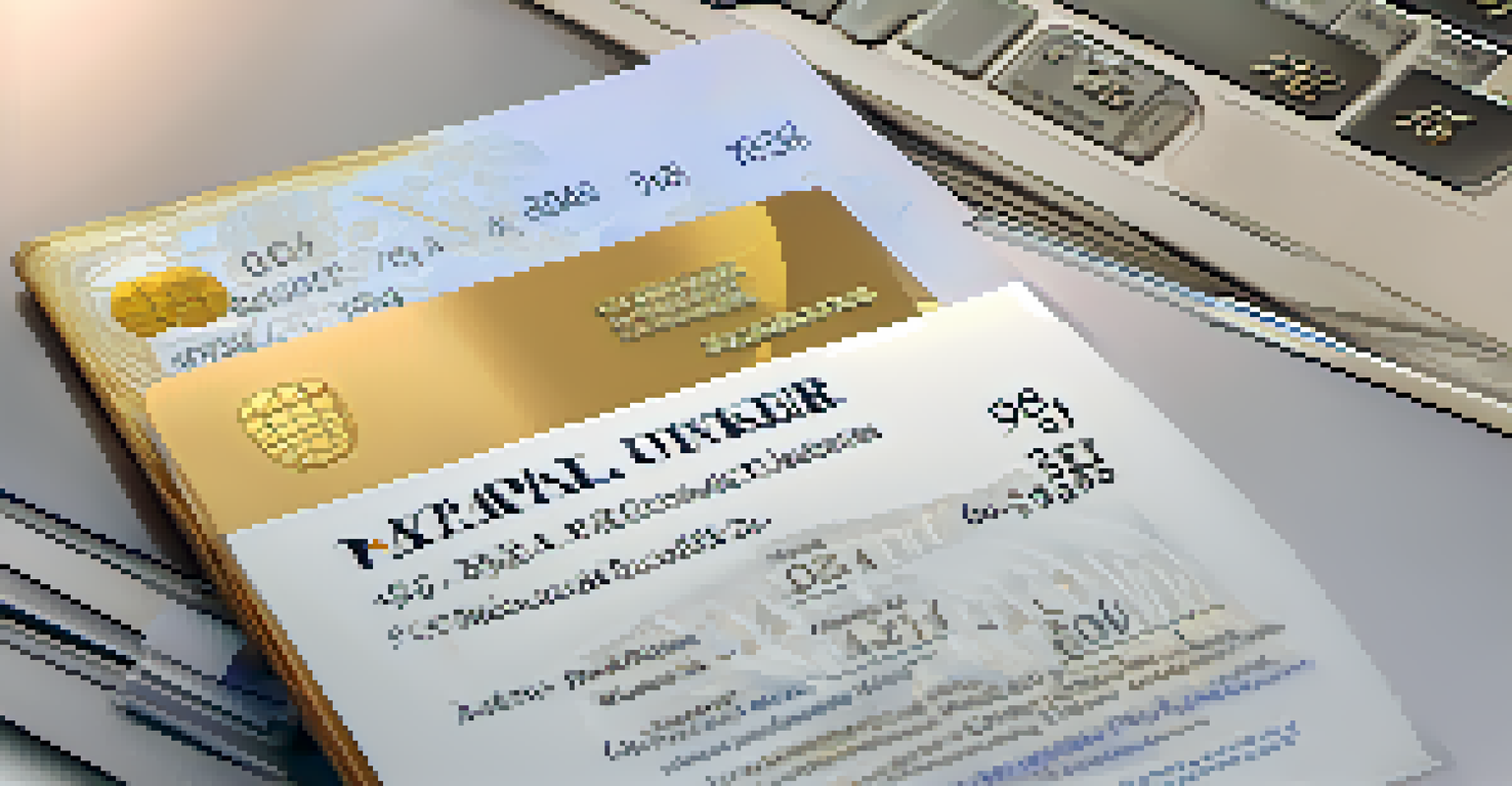Key Tax Forms for Foreign Nationals in the United States

Overview of Tax Obligations for Foreign Nationals
Navigating the U.S. tax system can be daunting for foreign nationals. Depending on your residency status, you may have different tax obligations. It's important to understand whether you're classified as a resident or non-resident alien when filing taxes.
The hardest thing in the world to understand is the income tax.
Resident aliens are generally taxed on their worldwide income, while non-resident aliens are taxed only on U.S.-sourced income. This distinction is crucial in determining which tax forms to use and how to report your income.
Being aware of your tax obligations helps avoid penalties and ensures compliance with the IRS. With the right information, you can approach tax season with confidence.
Form 1040-NR: The Non-Resident Alien Tax Return
Form 1040-NR is the primary tax form for non-resident aliens in the U.S. This form is used to report income earned from U.S. sources and calculate any tax owed. If you’re a non-resident alien, it’s essential to file this form to fulfill your tax responsibilities.

Completing Form 1040-NR involves detailing your income, deductions, and credits. This may include wages, scholarships, and other U.S.-sourced income. The form also requires you to list any tax treaty benefits you may be eligible for, which can reduce your tax liability.
Understand Your Tax Obligations
Foreign nationals must differentiate between resident and non-resident status to navigate their U.S. tax responsibilities effectively.
Filing this form correctly can be complex, but it’s vital for avoiding issues with the IRS. If you're unsure, seeking assistance from a tax professional is a wise choice.
Form W-8BEN: Claiming Foreign Status
Form W-8BEN is essential for non-resident aliens who receive income from U.S. sources. This form certifies your foreign status and helps you claim any applicable tax treaty benefits. By submitting Form W-8BEN, you can often reduce or eliminate withholding tax on certain types of income.
In this world, nothing can be said to be certain, except death and taxes.
This form is typically used for various types of income, including dividends, interest, and royalties. It’s important to provide accurate information to ensure the correct amount of tax is withheld from your payments.
Keep in mind that Form W-8BEN does not need to be filed with the IRS; instead, it's submitted to the withholding agent. Regular updates may be required, especially if your circumstances change.
Form 8843: Statement for Exempt Individuals
Form 8843 is a unique document that non-resident aliens need to file under certain circumstances. If you’re a student, teacher, or trainee in the U.S. on a visa, this form helps establish your claim for exemption from the substantial presence test. This test determines if you’re considered a resident for tax purposes.
Completing Form 8843 is crucial, especially if you’re relying on your non-resident status to avoid paying U.S. taxes on foreign income. The form requires basic information about your visa status and the number of days you were in the U.S.
Key Forms for Tax Reporting
Forms like 1040-NR, W-8BEN, and 8843 are essential for non-resident aliens to report income and claim tax treaty benefits.
Remember, even if you didn’t earn any income, submitting Form 8843 is still necessary to maintain your non-resident status. It’s a simple step that can save you from potential tax issues.
Form 1098-T: Tuition Statement for Students
If you're a foreign national studying in the U.S., Form 1098-T is an important document to be aware of. This form reports qualified tuition and related expenses paid to eligible educational institutions. It may be beneficial for claiming education-related tax credits, which can reduce your tax liability.
While Form 1098-T is primarily for U.S. citizens and residents, foreign students may also need to use it when filing taxes. It’s crucial to keep this form handy, as it provides necessary information for tax reporting.
Understanding how to use Form 1098-T can help you take advantage of potential tax benefits related to your education in the U.S. Don’t overlook this resource as you prepare your tax return.
Form 1042-S: Income Subject to Withholding
Form 1042-S is critical for foreign nationals who receive income that is subject to withholding. This form reports income such as wages, dividends, and interest that have had taxes withheld at the source. If you've received this form, it’s essential for your tax preparation.
When you receive Form 1042-S, it provides details about the income earned and the amount of tax withheld. This information is necessary when filling out your tax return, as it helps you determine if you owe additional tax or are due a refund.
Seek Professional Tax Guidance
Consulting tax professionals can simplify the complex U.S. tax system and help avoid costly mistakes.
Be sure to keep Form 1042-S along with your other tax documents. This will streamline the filing process and ensure you have all the necessary information at your fingertips.
Tips for Navigating U.S. Tax Forms
Navigating U.S. tax forms can be overwhelming, especially for foreign nationals. Start by gathering all necessary documents, including forms related to your income, residency status, and any applicable treaties. Organization is key to making the filing process smoother.
Consider seeking guidance from tax professionals who specialize in international taxation. They can help clarify any confusion and ensure you comply with U.S. tax laws. Remember, it’s better to ask for help than to make mistakes that could lead to penalties.

Lastly, keep abreast of tax deadlines and requirements. Staying informed will help you avoid last-minute stress and allow you to file your taxes accurately and on time.